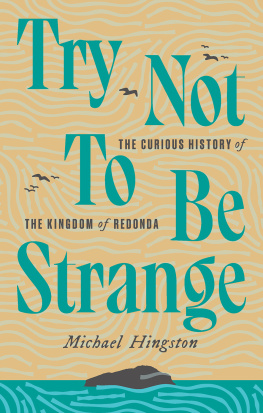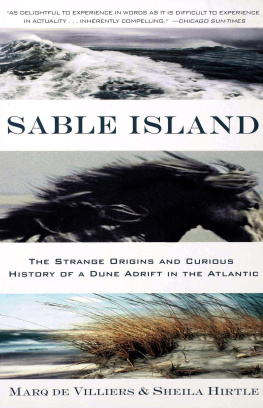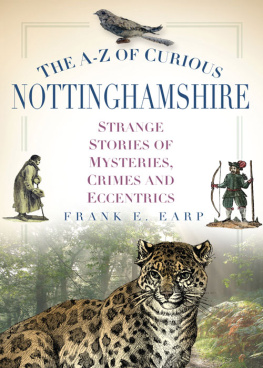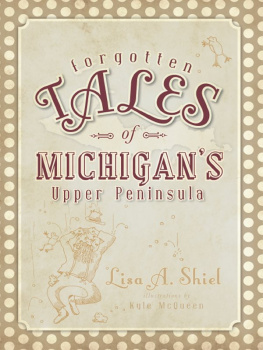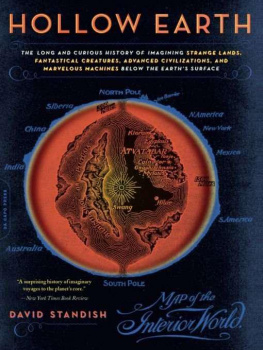Islands can get a bit claustrophobic.
Prologue
Perpetuating the Fraud
On the evening of November 24, 2009, an email appeared in Michael Howorths inbox.
It had been a crisp, windy Sunday in Downton, the village in Southern England where Howorth lived with his wife. Michael and Frances had made their home in Downton for many years and had raised a family there. But now that their youngest daughter had moved out, the couple used the village mainly as a landing pad between assignments as travelling freelance journalists covering the yachting industry. They were a team: Michael wrote the stories, and Frances took the photos. Over the years, their work had appeared in dozens of maritime-related publications and had taken them everywhere from Africa to the Galapagos to the Maldives. Just that month, the couple had been to both Amsterdam and Fort Lauderdale, Florida, attending trade shows and taking notes on local accommodations. One overly cozy Dutch establishment had, Howorth wrote on his blog, the smallest elevator known to mankind, that is far from kind to men of ample girth!
Now, Michael and Frances were back in England, airing out their suitcases and making plans for the remainder of the year. One of the biggest events in the yachting world, for instance, was coming up in mid-December. The Antigua Charter Yacht Show attracted brokers from around the globe, who gathered to view boats on display in multiple harbours all around the island; they also came to have a good time under the Caribbean sun. Howorth had spent enough time in the industry to know that these parties and liquid lunches were the perfect places to find a good story. But he also felt the quality of the Antigua show was on the decline, and the price to fly him and Frances across the Atlantic and back was not insignificant. Like any good freelancer, Howorth was weighing his upfront costs against the potential profits that would come with a well-placed article or two.
But that evening in front of his computer, Howorths eye was immediately drawn to the subject line of his new email. He clicked on it and saw the message in full:
Dear Michael
An old sea chest was found in the bilge of King Bob the Balds naval flagship, the Great Peter. Within this sea chest were some water damaged papers including one assigning the Kingship upon his demise. I attach a copy of the document. I have the original.
Regards
John Duffy
P.S . I am just helping to perpetuate the whole fraud.
Attached was a scanned copy of a smudged single-page royal proclamation. At the top of the page was a tricoloured flag with a crest containing a crown sitting atop a castle turret; instead of hand-written calligraphy, the main text appeared in a cursive typeface that came standard on Microsoft Word. At first glance, Howorth wasnt sure what to make of the document, but he did recognize a few key words and names especially the one confidently signed in actual handwriting at the bottom of the page: his old friend Robert Williamson, who was also known in certain circles as King Bob the Bald.
All at once, the pieces clicked into place.
Frances! Howorth called to his wife in the next room.
Yes? What is it?
Howorth stared at his computer screen in disbelief. I think Im the new King of Redonda.
1
An Enc ounter on the Prairies
The first time I heard about the Kingdom of Redonda was during a chance encounter in a used bookstore in Edmonton, Alberta. It was the summer of 2013, during a period of professional restlessness. For the past five years Id been trying to establish a career for myself as a writer, while also enduring eight-hour cubicle stints at a series of unfulfilling day jobs. Now I was approaching a delicate yet critical point in the process. While trying to generate enough freelance journalism work to justify quitting my current cubicle, Id ended up doing the equivalent of two full-time jobs at once. My writing assignments were interesting enough, but the ones that paid on time didnt pay well, so I needed to do a lot of them. I also had a partner and two young kids at home, and my first book, a gleefully foul-mouthed novel about a university student newspaper, was about to be published that fall. I could tell my life was about to change; I just couldnt predict exactly how.
While in many ways a fine place to live, Edmonton is not known as a book mecca. There are reasons for that: the city is fairly young, mid-sized (though growing), and located not just in the sparsely populated prairies but also hundreds of kilometres farther north than every other major centre in the country. Edmonton has had its share of stalwart indie bookstores over the decades, but its supply of used books just cant compete with that of larger, more established cities. As a result, readers here develop leonine instincts. When something interesting or unusual catches our eye, we grab it right away. Because we dont know when we might see it again.
Thats what happened when I was browsing Alhambra Books one afternoon and came across a copy of Javier Marass novel All Souls. Maras is a Spanish novelist who had recently been added to my mental list of writers to look out for, even though at that point I knew him mostly by reputation. His work was discussed, both in print and on social media, in awed, almost-reverential terms; plus, his North American publisher was New Directions, a press whose taste in translated fiction I had quickly come to trust. A few months earlier, Id bought a copy of the ND edition of a standalone story by Maras called Bad Nature, or With Elvis in Mexico, and had been charmed by the authors plummy style, as well as the way he populated his story with real-world figures and events. So when I saw that used copy of All Souls on the shelf, I pounced.
The copy itself was nothing special: a well-thumbed paperback with flecks of sticker grease on the back cover and a remainder line drawn in permanent marker across the bottom of the text block. On the cover was a black-and-white photograph of a silhouetted couple, and the typefaces were pure 90s, in that they were abrasive and there were too many of them. Still, I knew a lucky find when I saw one. I shelled out $10.50 and brought the book back home, where I placed it next to Bad Nature in my library.
I buy books in mad flashes of optimism, but they rarely end up getting read in the same calendar year theyre acquired. This is partly because I dont keep a formal TBR pile and so never have to face up to my neglected purchases every time I walk past my desk or bedside table. And partly its because the thrill of acquisition is so potent that actually reading the book becomes a secondary task that can wait for later. I tend to work through my library from the opposite direction: when looking for a new book to read, the question I ask myself is not, What do I feel like reading? but Whats something Ive owned forever but havent gotten to yet? In reading, as in life, guilt is a powerful motivator. But Marass novel proved so intriguing that I snuck it to the front of the line anyway.
I picked up All Souls in late July. In addition to being conducive to quiet freelancing off the side of my desk, my day job also allowed for reading time that was reliable, if piecemeal. I got fifteen minutes on my morning commute, riding the train downtown; fifteen minutes during my morning coffee break; thirty minutes during lunch; another fifteen minutes during the afternoon coffee break; and a final fifteen minutes on the train back home. More than an hour in total, and I used it all on reading. Anything that might get between me and my book had to be kept ruthlessly to the perimeter. Unnecessary socializing with co-workers was out, save the occasional hockey venting; lunch I could eat at my desk, or balanced on my lap at a park bench, my hands occupied by a fork and a paperback.

